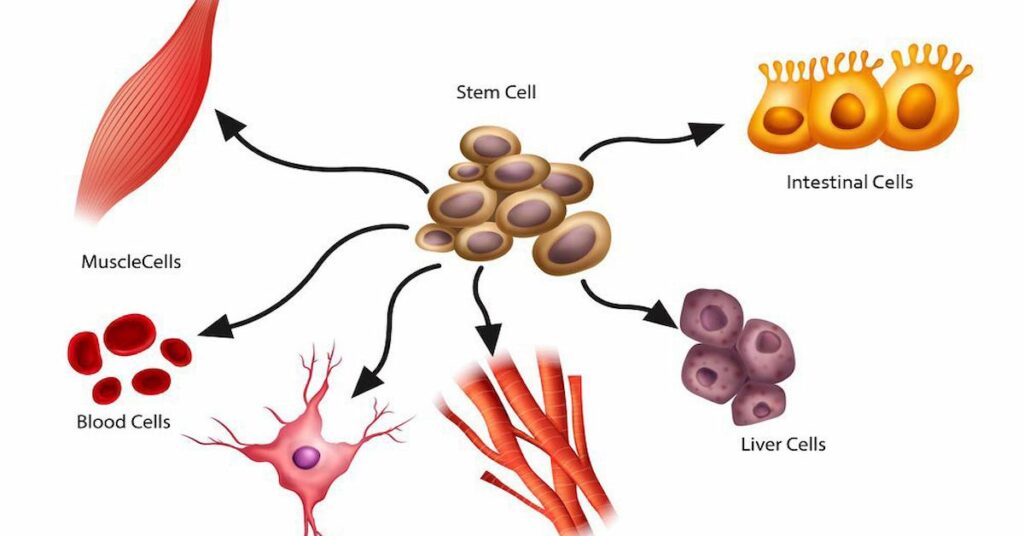What are stem cells?
You might have heard about stem cells and you have wondered if they might help you or your loved ones with a serious illness or disease. You might have wondered what are stem cells and how they are useful in the treatment of various diseases and injuries and why they are such a debated subject.
Cells of the body in the form of raw materials with which all other cells with particular functions are generated are called stem cells. When provided right conditions in the body or a laboratory, stem cells multiply to form more cells called daughter cells. They are undifferentiated or partially differentiated in a multicellular organism and can differentiate into various types of cells. The daughter cells become either new stem cells or cells with specific functions. Some example of these cells is blood cells, brain cells, heart muscle cells bone cells, etc. The other cells of the body have no natural way to generate new cell types on their own.


Origin of stem cells
Embryonic stem cells
Embryonic stem cells as the name suggest originated from cells in the early embryos when they are 3 to 5 days old. The embryonic stem cell at this stage is called a blastocyst and is categorized as pluripotent meaning they can multiply and generate more stem cells or become other new cells of the body. This special feature of embryonic stem cells to generate new types of cells allows doctors to regenerate or repair damaged tissues or organs during a disease.
Adult stem cells
Most adult tissues contain these cells in small numbers, such as bone marrow or fat in the body. Adult stem cells have a rather limited ability to generate new cells when compared to embryonic stem cells. Researchers in the past have thought that stem cells can create similar types of cells but at present researchers have found that stem cells can create various types of cells. Currently, researchers are applying the use of stem cells mostly in the treatment of neurological and heart diseases
Pros of Stem cell research
- Stem cell research can help in treating several medical conditions. It will help lead humanity closer to better treatment.
- In the treatment of Parkinson’s disease
- In the treatment of various Birth defects
- In the treatment of Diabetes
- In the treatment of Alzheimer’s disease
- In the treatment of Spinal cord injury
- In the treatment of Heart Diseases
- In Neurological disorders
- In the treatment of different types of Cancer
- Replacement or repair of damaged organs
Cons of Stem cell research
- Those who are against the Centre for stem cell research argue that the ethical issues of scientific research on aborted fetuses do not justify the possible benefits.
- Some argue that this life is given to us by God and we should not mess with it.
- Some argue that the use of embryonic stem cells is unethical and that we should wait until researchers find new ways.
- We don’t know if we can use stem cells to clone transplantable organs for sure.
FAQs
Is stem cell exploration good or bad?
Although exploration into adult stem cells is promising, adult stem cells may not be as protean and durable as are embryonic stem cells. Adult stem cells may not be suitable to be manipulated to produce all cell types, which limits how adult stem cells can be used to treat conditions.
Why are stem cells parlous?
Embryonic stem cells might also spark an vulnerable response in which the philanthropist’s body attacks the stem cells as foreign raiders, or the stem cells might simply fail to serve as anticipated, with unknown consequences. Experimenters continue to study how to avoid these possible complications.
